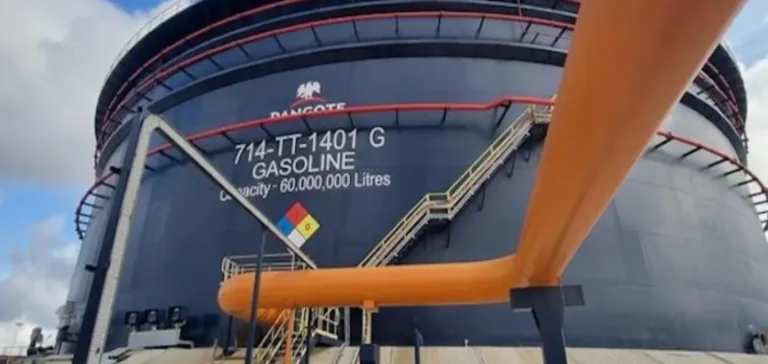Dangote Group has confirmed that the recent drop in crude supply to its Lekki refinery is a strategic decision prompted by market conditions, particularly the rise in international prices. The company dismissed speculation of technical failure or operational disruption, stating that the reduction in crude intake was part of a cost-optimisation strategy.
Volume management based on price levels
Edwin Devakumar, Executive Director of the group, explained that crude purchases are adjusted based on stock levels and price developments. The refinery, with a processing capacity of 650,000 barrels per day, has been operating since 2018 and follows a planned maintenance schedule every five years. He noted that this model distinguishes the plant from older refineries, which are often subject to frequent shutdowns.
According to Devakumar, the plant’s gasoline unit has been shut down four times this year, a figure he considers consistent with modern facility operations. The company does not publish a detailed maintenance calendar but asserts that all shutdowns are planned and controlled.
Enhanced security measures after sabotage attempts
Devakumar also reported that the refinery had faced 22 sabotage attempts since the beginning of the year, including fire incidents and tampering with critical equipment. He stated that automated monitoring and fire safety systems had prevented any material damage or significant disruption.
“We have precise records of the dates and units involved in these incidents,” he said. “Some individuals tried to interfere with instruments, but the system neutralised the actions.” No further details were provided regarding administrative or legal proceedings related to the incidents.
A flagship private sector investment in Nigeria
The Dangote refinery remains one of the largest private industrial investments in sub-Saharan Africa. It operates in a context where Nigeria’s public refining infrastructure remains inactive due to decades of underinvestment and poor governance.
The Crude Oil Refinery Owners Association of Nigeria (an association representing the country’s private refiners) stated that sabotage incidents are rare in the sector. However, the scale of the reported cases at the Dangote site raises questions about the protection of critical energy infrastructure in a shifting operating environment.






















